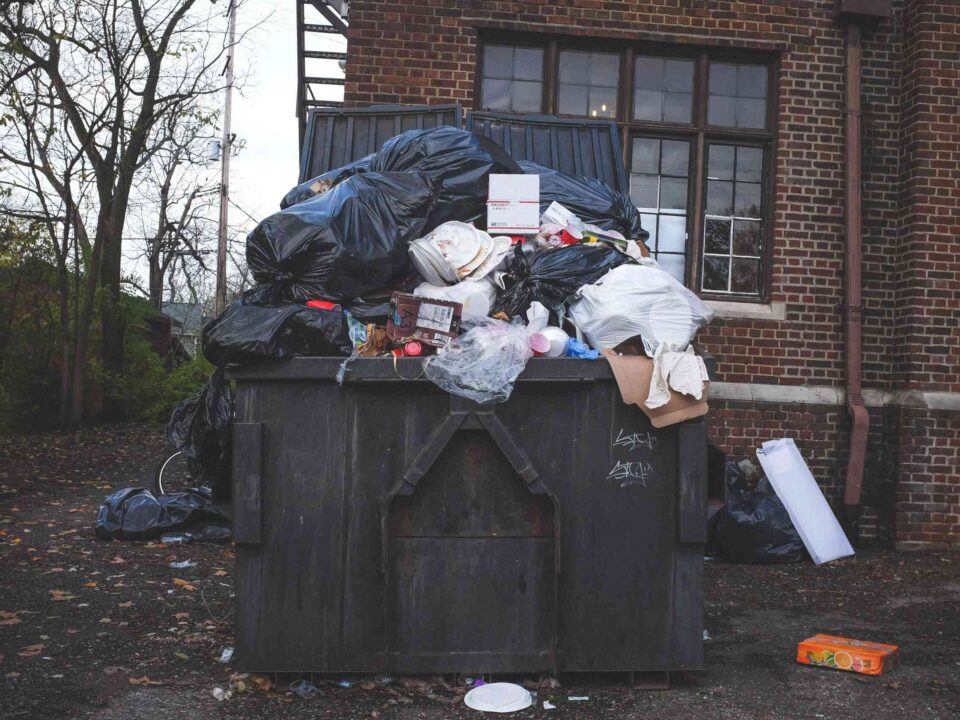
The Best Times to Call a Junk Removal Service in Santa Rosa, CA
October 3, 2025
The Benefits of Junk Removal for Santa Rosa, CA’s Real Estate Market
October 3, 2025The Environmental Benefits of Commercial Junk Removal
Reducing Waste and Preserving Natural Resources
Commercial junk removal plays a crucial role in minimizing the impact of waste on the environment. Businesses often accumulate large quantities of discarded items, from office furniture to electronics, which can overwhelm landfills and contribute to pollution. By properly managing junk removal, companies ensure that materials such as metals, plastics, and wood are recycled or repurposed, reducing the need to extract new raw resources. This approach not only conserves natural resources but also helps maintain ecosystems and reduce greenhouse gas emissions associated with producing new materials. Sustainable junk removal practices are therefore an essential component of environmentally responsible business operations.
The process of commercial junk removal encourages businesses to consider the lifecycle of their materials. Items that might otherwise be thrown away are carefully sorted, with usable components diverted to recycling centers or donation programs. This strategy decreases the overall environmental footprint and promotes a culture of conscientious consumption. Employees and customers alike benefit from seeing businesses prioritize sustainability, demonstrating that environmental responsibility and operational efficiency can coexist. Overall, thoughtful junk removal is an investment in the planet’s future, ensuring that waste is managed in a way that protects natural resources while supporting the business’s operational goals.
Promoting Recycling and Resource Recovery
Effective commercial junk removal services focus on maximizing recycling opportunities, transforming waste into valuable resources. Electronic waste, construction debris, and other materials can be processed and reintroduced into manufacturing cycles, reducing the dependence on virgin resources. Metals such as aluminum and steel, plastics, and paper products are particularly valuable in recycling programs. By redirecting these materials away from landfills, businesses contribute to a circular economy where resources are continually reused rather than discarded. This approach also minimizes the environmental hazards associated with improper disposal, such as soil contamination and toxic runoff.
In addition, resource recovery through junk removal can spark innovation within business operations. Companies often discover ways to repurpose equipment or materials, cutting costs while reducing environmental impact. Staff engagement in recycling initiatives reinforces sustainable practices across the organization, creating a ripple effect that extends beyond immediate operational concerns. By embracing comprehensive recycling strategies, businesses demonstrate that commercial junk removal is not just about clearing space but about creating environmental value. This proactive approach helps companies align with modern sustainability standards and reinforces their commitment to environmental stewardship.

Reducing Landfill Dependence
One of the most tangible environmental benefits of commercial junk removal is its ability to reduce the volume of waste sent to landfills. Landfills are significant sources of methane emissions, a potent greenhouse gas, and can lead to long-term environmental degradation. By diverting items from landfill disposal, commercial junk removal mitigates these effects, contributing to cleaner air and healthier soil. Businesses that prioritize responsible waste management help slow the pace of landfill expansion, preserving land for productive use rather than for waste storage. This approach reflects a forward-thinking commitment to sustainable development and environmental responsibility.
Businesses also experience operational advantages from reducing landfill dependence. Fewer trips to local disposal sites translate to lower fuel consumption and reduced carbon emissions from transportation. Additionally, managing waste more efficiently allows for better organization within business premises, reducing clutter and improving workflow. These operational efficiencies, combined with environmental benefits, create a win-win scenario that underscores the value of investing in professional junk removal services. Ultimately, diverting waste from landfills is not only a responsible environmental choice but also a strategic business decision that enhances sustainability and efficiency simultaneously.
Lowering Carbon Footprint Through Efficient Disposal
Commercial junk removal can significantly reduce a company’s carbon footprint by ensuring that waste is collected, sorted, and disposed of using environmentally friendly methods. Trucks optimized for waste transport, coupled with organized recycling programs, help minimize emissions from hauling operations. Furthermore, the reuse and repurposing of materials prevent additional carbon emissions associated with the production of new goods. Companies that implement structured junk removal strategies contribute to overall climate mitigation efforts, showcasing their commitment to reducing environmental impact while managing business operations efficiently.
Efficient disposal practices also extend to energy conservation within recycling and processing facilities. When businesses supply materials for recycling rather than landfill disposal, energy-intensive processes for extracting and refining raw materials can be avoided. This conservation reduces the indirect carbon footprint of business activities and supports broader efforts to combat climate change. By integrating efficient junk removal into their sustainability plans, companies demonstrate responsible environmental management that resonates with employees, clients, and the wider community. The outcome is a measurable reduction in greenhouse gas emissions and a tangible contribution to global environmental goals.
Supporting Sustainable Business Practices
Commercial junk removal is more than just clearing out unwanted items; it is a key enabler of sustainable business practices. By implementing structured disposal and recycling programs, companies create an organized approach to waste that reflects environmental responsibility. This practice not only reduces negative ecological impacts but also enhances corporate reputation, signaling to stakeholders that the company values sustainability. Integrating these practices into daily operations fosters a culture of mindfulness around consumption and disposal, encouraging staff to participate in eco-friendly behaviors.
Moreover, sustainable business practices driven by effective junk removal have financial and operational benefits. Materials recovered through recycling can be sold or reused, reducing the cost of purchasing new items and lowering overall waste management expenses. Companies can also leverage their commitment to sustainability in marketing and community engagement efforts, strengthening brand image and customer loyalty. The combination of environmental impact, cost savings, and public perception illustrates that commercial junk removal is an essential tool for businesses striving to operate responsibly while achieving their strategic objectives.
Enhancing Community Health and Safety
Proper commercial junk removal contributes directly to improved community health and safety. Accumulated waste on commercial properties can attract pests, create fire hazards, and contribute to unsanitary conditions. Removing these items efficiently minimizes potential health risks and enhances the surrounding environment for employees, customers, and local residents. Clean, organized spaces reduce stress and create a safer, more pleasant atmosphere for everyone who interacts with the business. This focus on health and safety aligns environmental responsibility with practical benefits for daily operations.
Communities also benefit from the responsible disposal of commercial junk through reduced pollution and contamination. Recycling and proper waste processing prevent hazardous materials from entering soil and waterways, protecting local ecosystems. By participating in structured junk removal programs, businesses become active contributors to community well-being, demonstrating social responsibility in addition to environmental stewardship. This holistic approach ensures that the positive impact of commercial junk removal extends beyond the business premises, fostering a healthier and safer community environment for all.
Mitigating Hazardous Waste Risks
Certain types of commercial waste, including chemicals, electronics, and industrial materials, pose significant environmental and health risks if not handled properly. Professional junk removal services ensure that hazardous materials are safely collected, transported, and disposed of according to environmental regulations. This mitigation prevents toxins from leaching into the soil, contaminating water supplies, and harming wildlife. Businesses that engage in proper hazardous waste management demonstrate accountability and proactive environmental care, safeguarding both public health and the planet.
In addition to regulatory compliance, mitigating hazardous waste risks protects a company from potential legal and financial repercussions. Businesses that fail to handle dangerous materials responsibly may face fines, lawsuits, and reputational damage. By investing in professional junk removal, companies minimize these risks while actively contributing to environmental conservation. This dual advantage reinforces the importance of structured commercial junk removal strategies that prioritize safety, sustainability, and compliance with environmental standards.
Encouraging Corporate Social Responsibility
Commercial junk removal offers a practical avenue for businesses to embrace corporate social responsibility. By choosing services that prioritize recycling, donation, and eco-friendly disposal methods, companies signal their commitment to environmental stewardship. This practice enhances public perception, attracting environmentally conscious customers, partners, and investors. A visible commitment to sustainability helps organizations differentiate themselves in competitive markets while fostering a sense of pride among employees and stakeholders.
Corporate social responsibility through junk removal also promotes community engagement. Donations of gently used items support local charities and nonprofit organizations, creating a positive social impact alongside environmental benefits. Employees involved in sustainability initiatives often report higher satisfaction and motivation, as their work aligns with broader ethical goals. Overall, integrating commercial junk removal into CSR strategies strengthens the company’s ethical footprint while delivering tangible environmental and social advantages that resonate with multiple audiences.
Preserving Local Ecosystems
Effective commercial junk removal contributes to the preservation of local ecosystems by preventing pollutants and debris from entering natural habitats. Proper disposal of waste materials, including metals, plastics, and electronics, ensures that harmful substances do not contaminate soil or waterways. This proactive management protects flora and fauna, supporting biodiversity and ecological balance. Businesses that implement environmentally conscious junk removal practices demonstrate respect for local ecosystems and the communities in which they operate.
Preserving local ecosystems also has indirect benefits for businesses. Healthy environments attract customers, enhance employee well-being, and reduce potential environmental liabilities. By reducing the environmental footprint of their operations, companies contribute to long-term ecological stability, aligning their commercial objectives with environmental preservation. This approach underscores the interconnectedness of business activity and natural systems, highlighting the essential role of commercial junk removal in maintaining sustainable and thriving local environments.
Supporting Circular Economy Initiatives
Commercial junk removal plays a pivotal role in advancing circular economy initiatives, where materials are continuously reused, recycled, or repurposed rather than discarded. By sorting and redirecting waste into appropriate recycling streams, businesses help extend the life of materials and reduce the extraction of new resources. This system minimizes waste generation, encourages innovation in product design, and fosters sustainable consumption patterns. Embracing circular economy principles through junk removal demonstrates a forward-thinking commitment to environmental responsibility and operational efficiency.
Participating in circular economy practices also strengthens a company’s market positioning. Consumers increasingly value businesses that actively reduce waste and prioritize sustainability, creating competitive advantages. Additionally, employees and stakeholders recognize the value of working for environmentally responsible organizations. By integrating circular economy strategies into commercial junk removal programs, businesses contribute to a regenerative system that benefits both the environment and the company’s long-term success, showcasing a holistic approach to sustainable operations.
Conclusion
Commercial junk removal is more than a practical necessity for businesses; it represents a strategic approach to environmental responsibility and sustainability. By reducing waste, supporting recycling, minimizing landfill dependence, and lowering carbon footprints, companies can significantly mitigate their environmental impact. Structured junk removal practices also enhance community health, ensure safe handling of hazardous materials, and encourage corporate social responsibility. Businesses that implement these practices not only preserve natural resources but also demonstrate a commitment to ethical operations and long-term sustainability. The cumulative effect of these efforts is a healthier environment, safer communities, and a more conscious approach to material management that resonates with employees, clients, and the wider public.
For businesses in Santa Rosa and surrounding areas seeking professional junk removal services, North Bay Junk Removal provides comprehensive solutions that align with environmental best practices. By utilizing their expertise, companies can efficiently clear out unwanted items while ensuring responsible disposal, recycling, and donation of materials. Their team handles all types of commercial waste with professionalism and care, reducing environmental impact and promoting sustainability. To schedule service or learn more, contact North Bay Junk Removal in Santa Rosa, CA at 707-478-6817 and take the first step toward a cleaner, more environmentally responsible workspace.




